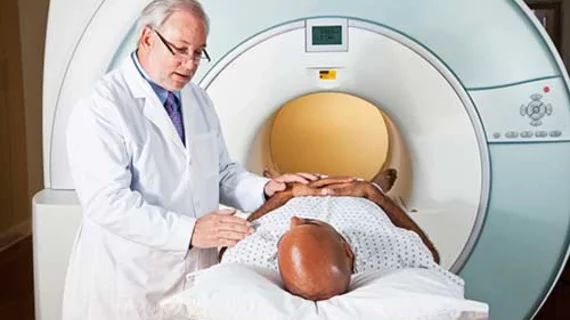Facebook, NYU collaborate on using AI to speed up MRIs
Facebook and the department of radiology at NYU School of Medicine in New York City have announced a new collaboration that will focus on using artificial intelligence (AI) to make MRI scans up to 10 times faster. The project, known as fastMRI, aims to expand access to MRI equipment by making imaging more convenient for pediatric patients and individuals who may be claustrophobic.
“Sufficiently accelerated MRI devices could also reduce the amount of time patients must hold their breath during imaging of the heart, liver, or other organs in the abdomen and torso,” according to the announcement. “Increased speed could let MRI machines fill the role of X-ray and CT machines for some applications, allowing patients to avoid the ionizing radiation associated with those scans.”
Facebook and NYU School of Medicine said AI could make MRI equipment scan patients faster by capturing less data. “The key,” according to the announcement, “is to train artificial neural networks to recognize the underlying structure of the images in order to fill in views omitted from the accelerated scan.”
The Facebook Artificial Intelligence Research group and NYU’s Center for Advanced Imaging Innovation and Research (CAI2R) had already been exploring this technology separately. Now this collaborative research project will join those teams together as they work with a data set that includes 10,000 clinical cases and approximately 3 million MRI images.
“We believe the fastMRI project will demonstrate how domain-specific experts from different fields and industries can work together to produce the kind of open research that will make a far-reaching and lasting positive impact in the world,” the group said in the announcement.

